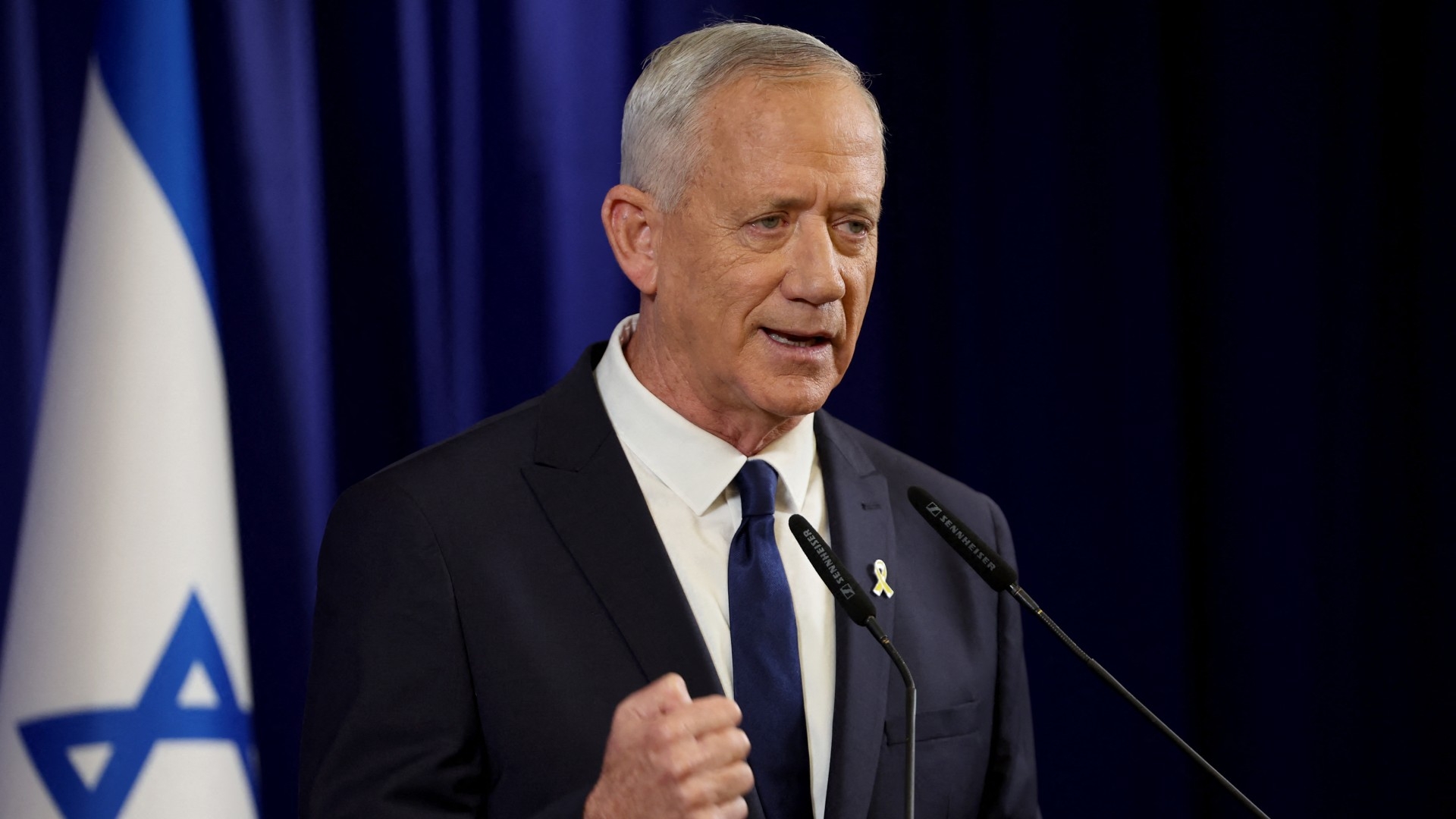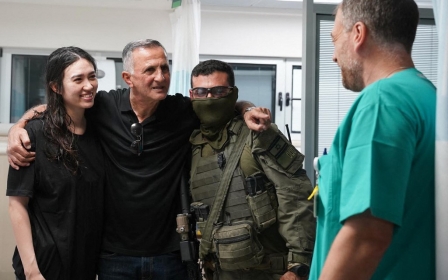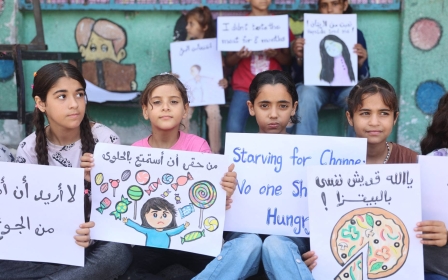Israel: Benny Gantz resigns from war cabinet over absence of post-war Gaza plan

Israeli war cabinet member Benny Gantz resigned from Prime Minister Benjamin Netanyahu's government on Sunday citing, amongst other reasons, the absence of a post-war plan for Gaza.
The move does not immediately pose a threat to Netanyahu, who still controls a majority coalition in parliament, but the Israeli premier will now be more heavily reliant on his far-right allies for support.
"Netanyahu prevents us from moving forward to a real victory [in Gaza]," Gantz said in a televised address. "That is why we are leaving the emergency government today with a heavy heart, but with a whole heart."
Gantz's announcement fulfils an ultimatum he gave Netanyahu last month calling on him to lay out a new plan for the war on Gaza by 8 June.
Gantz had been expected to resign on Saturday, but postponed the announcement following news that Israeli forces had rescued four captives in an operation Palestinians officials in Gaza said killed more than 270 people.
New MEE newsletter: Jerusalem Dispatch
Sign up to get the latest insights and analysis on Israel-Palestine, alongside Turkey Unpacked and other MEE newsletters
"Innocent and unarmed civilians were bombed in their homes. I've never seen anything like this. It's a catastrophe," Nidal Abdo, a resident of Nuseirat, one of the areas that was heavily bombed, told Middle East Eye.
"I came from the camp to here in the hospital on foot. I can't describe how we fled. I saw dead children and body parts strewn all over as we fled. No one was able to assist them. I saw an elderly man killed on a animal-drawn cart.
"Nuseirat was being annihilated. It was hell."
Gantz's resignation comes despite Netanyahu on Saturday calling on him to stay in Israel's emergency government. "We must remain united within ourselves in the face of the great tasks before us. I call on Benny Gantz – do not leave the emergency government. Don't give up on unity," Netanyahu urged him on Telegram.
Gantz's decision will now leave the war cabinet, set up four days after 7 October attack, without representation from any party other than Netanyahu’s Likud.
Besides the prime minister, the only other remaining member of the emergency government with decision-making power is Defense Minister Yoav Gallant, also from Likud.
Following the decision, far-right national security minister Itamar Ben-Gvir immediately demanded a seat on the war cabinet, writing on X, formerly known as Twitter, that "the time has come to make brave decisions."
Israel's Opposition Leader Yair Lapid, however, hailed Gantz's move, saying the "decision to leave the failed government is important and correct".
"The time has come to replace this extreme and reckless government with a sane government that will lead to the return of security to the citizens of Israel, to the return of the abducted, to the restoration of Israel's economy and international status," he said.
Familes of captives call for ceasefire deal
Gantz's decision comes as Netanyahu faces growing calls from Israel's Western allies and families of hostages held in Gaza to end the war and bring back the captives.
Nine months into the war, Israel is yet to achieve its stated objectives as most of Hamas' top leadership remains at large and more than 100 hostages are still held in the enclave.
The United States has repeatedly called on Netanyahu to present a post-war plan for Gaza, and last week, US President Joe Biden suggested that Israeli premier is likely benefiting from prolonging the conflict.
The families of captives still held in Gaza, along with several of Netanyahu's critics, have argued that only a deal with Hamas can see the release of the remaining hostages.
"There are still hostages there and we need to get them all out," Michael Levy, who's brother is still held captive in Gaza, told Middle East Eye on Saturday.
"They [the Israeli military] won't be able to release all of them in a military operation, so we still have to get to a deal and seal it soon."
Around 110 of the 250 originally captured by Hamas were released in exchange for Palestinian prisoners during a brief truce last year, while only seven have been freed by the Israeli military.
Almog Meir Jan, who was released alongside Noa Argamani, Andrey Kozlov and Shlomi Ziv told broadcaster Channel 12 that he, Kozlov and Ziv were held in four different homes during their eight months in captivity.
Rescue operation can't be replicated
Speaking on Saturday, Daniel Hagari, the chief spokesman for the Israeli military, downplayed the idea that the operation could be widely replicated, saying Argamani had been moved "a couple of times," and that "more than three or four" planned rescue missions had been called off.
"We know that we cannot do operations to rescue all of them because the conditions won't allow it," Hagari said.
"We saw already that what brought the biggest number of hostages home was a deal... There is no argument about that."
The war on Gaza, now in its ninth month, has turned much of the enclave, which is home to more than two million Palestinians, into an uninhabitable hellscape.
Whole neighbourhoods have been erased. Homes, schools and hospitals have been devastated by air strikes and scorched by tank fire.
Nearly the entire population is reported to have fled their homes, and those who remained in northern Gaza are on the verge of famine.
More than 37,000 people have been killed, the great majority of them women and children. Thousands more are missing or presumed to be dead under the rubble.
Middle East Eye delivers independent and unrivalled coverage and analysis of the Middle East, North Africa and beyond. To learn more about republishing this content and the associated fees, please fill out this form. More about MEE can be found here.





